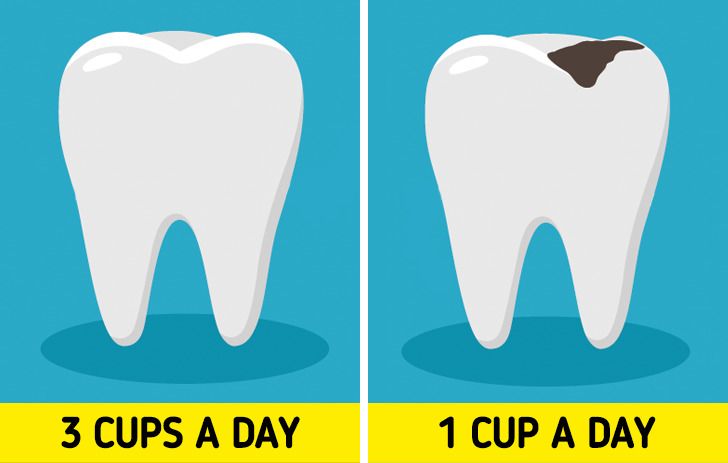Black tea is one of the most widely consumed beverages around the globe, renowned for its robust flavor and rich history. But beyond its taste, black tea has been the subject of extensive research, uncovering a range of health benefits and potential drawbacks when consumed daily. This comprehensive guide will explore what happens to your body if you drink black tea every day. We’ll delve into its impact on blood pressure, cholesterol, oral health, diabetes prevention, as well as potential downsides like headaches and sleep disturbances.
This article is optimized to provide valuable insights for health enthusiasts, tea lovers, and those interested in holistic wellness. Let’s examine how a daily cup of black tea can shape your overall health and well-being.
It May Reduce Blood Pressure: Black Tea’s Cardiovascular Benefits

Regular consumption of black tea has been associated with improvements in cardiovascular health, particularly in reducing blood pressure.
How Black Tea Helps Lower Blood Pressure
Antioxidant-Rich Compounds:
Black tea contains polyphenols, such as flavonoids, which have potent antioxidant properties. These compounds help protect the lining of blood vessels, reducing the risk of hypertension by improving blood vessel function.
Vasodilation Effects:
The active ingredients in black tea can promote vasodilation (the widening of blood vessels), which enhances blood flow and reduces overall blood pressure. Improved circulation not only benefits heart health but also reduces the strain on the cardiovascular system.
Stress Reduction:
Drinking black tea can have a calming effect, reducing stress levels which are known contributors to high blood pressure. A relaxed state of mind may contribute to lower blood pressure readings.
For more detailed insights into the relationship between black tea and blood pressure, visit Mayo Clinic’s cardiovascular health resources.
Black Tea May Help With Cholesterol: Supporting Heart Health Naturally

In addition to managing blood pressure, black tea may also play a role in regulating cholesterol levels, a key factor in heart health.
The Role of Black Tea in Cholesterol Management
Lowering LDL Levels:
Research indicates that the antioxidants in black tea can help lower levels of low-density lipoprotein (LDL) cholesterol, often referred to as “bad” cholesterol. Lower LDL levels reduce the risk of plaque buildup in the arteries, thereby decreasing the risk of heart disease.
Improving HDL Levels:
Some studies suggest that black tea consumption may help increase high-density lipoprotein (HDL) cholesterol, known as “good” cholesterol, which aids in the removal of excess cholesterol from the bloodstream.
Anti-Inflammatory Effects:
The anti-inflammatory properties of black tea contribute to a healthier cardiovascular system by reducing chronic inflammation, a significant risk factor for heart disease.
For additional information on how natural foods can help manage cholesterol, check out Healthline’s cholesterol management tips.
It Can Fight Cavities: Black Tea’s Benefits for Oral Health

Oral hygiene is an essential component of overall health, and surprisingly, black tea can contribute to better dental health by helping to fight cavities.
How Black Tea Contributes to Oral Health
Antimicrobial Properties:
The polyphenols in black tea have antimicrobial properties that help inhibit the growth of bacteria responsible for dental plaque and cavities. By reducing bacterial accumulation, black tea can contribute to a healthier mouth.
Fluoride Content:
Naturally occurring fluoride in black tea can strengthen tooth enamel, making it more resistant to decay and cavities. A stronger enamel is a critical defense against the erosive effects of acids produced by bacteria.
Reducing Inflammation:
The anti-inflammatory effects of black tea extend to the gums, helping to prevent gingivitis and other inflammatory oral conditions that can lead to tooth loss.
For further reading on oral health and the benefits of fluoride, refer to American Dental Association’s guidelines.
Black Tea Might Help Prevent Diabetes: Regulating Blood Sugar Levels

Diabetes prevention is a major public health goal, and black tea might offer some protective benefits by helping to regulate blood sugar levels.
The Connection Between Black Tea and Blood Sugar Control
Improved Insulin Sensitivity:
Some studies have found that regular consumption of black tea may enhance insulin sensitivity, which helps your body use glucose more effectively. Improved insulin sensitivity is crucial for preventing type 2 diabetes.
Reduced Glucose Absorption:
The compounds in black tea may help slow down the absorption of sugars in the digestive tract, leading to more stable blood sugar levels. This gradual absorption prevents spikes in blood sugar that can be harmful over time.
Antioxidant Defense:
Chronic oxidative stress is a known factor in the development of diabetes. The robust antioxidant profile of black tea can help neutralize free radicals and reduce oxidative stress, thereby supporting metabolic health.
For more insights on diabetes prevention and the role of diet in blood sugar regulation, visit WebMD’s diabetes management section.
Black Tea May Give You Headaches: Understanding the Potential Side Effects

While black tea has numerous health benefits, it’s important to be aware of potential side effects, including headaches, which some individuals may experience.
Why Black Tea Might Trigger Headaches
Caffeine Content:
Black tea contains caffeine, which, although beneficial in moderate amounts, can trigger headaches in individuals who are sensitive to caffeine or consume it in excess. Caffeine withdrawal is also a common cause of headaches.
Tannins and Other Compounds:
The tannins in black tea, while responsible for its rich flavor and antioxidant properties, can sometimes cause astringency and may contribute to headaches in sensitive individuals.
Dehydration:
Caffeine is a diuretic, which can lead to dehydration if not balanced with adequate water intake. Dehydration is a well-known trigger for headaches.
Mitigating Headache Risks
Monitor Your Intake:
Pay attention to your caffeine consumption and try to limit your intake if you notice headache patterns.
Stay Hydrated:
Ensure that you drink plenty of water throughout the day to offset the diuretic effects of caffeine.
Opt for Decaf:
If headaches persist, consider switching to decaffeinated black tea to enjoy its benefits without the side effects.
For more on caffeine and its effects on health, check out Harvard Health Publishing’s caffeine guide.
It Can Also Cause Anxiety and Difficulty Sleeping: The Double-Edged Sword of Caffeine

Although black tea is often praised for its energizing effects, its caffeine content can also lead to anxiety and disrupt sleep for some individuals, especially if consumed later in the day.
How Caffeine in Black Tea Affects Sleep and Anxiety
Stimulant Effects:
Caffeine is a natural stimulant that increases alertness and can interfere with the ability to fall asleep. Drinking black tea close to bedtime may result in difficulty sleeping and reduced sleep quality.
Anxiety Trigger:
High caffeine intake can lead to heightened anxiety, as it stimulates the central nervous system. For individuals prone to anxiety, this can exacerbate symptoms such as restlessness and irritability.
Sleep Cycle Disruption:
Even if you manage to fall asleep, caffeine can alter the natural sleep cycle, reducing the proportion of deep, restorative sleep. This disruption can leave you feeling fatigued the next day.
Managing Caffeine-Related Side Effects
Time Your Consumption:
To avoid sleep disturbances and anxiety, try to limit your black tea intake to the morning or early afternoon.
Opt for Smaller Servings:
Consider reducing the amount of tea you drink per serving to decrease the overall caffeine content.
Explore Herbal Alternatives:
For an evening beverage, herbal teas like chamomile or peppermint can provide relaxation without the stimulating effects of caffeine.
For further insights on managing caffeine consumption and its effects on sleep, visit Sleep Foundation’s caffeine and sleep article.
Integrating Black Tea into a Balanced Lifestyle
While black tea offers numerous health benefits, the key to maximizing its positive effects while minimizing side effects is moderation and balance. Here are some practical tips for integrating black tea into your daily routine:
Enjoying Black Tea in Moderation
Limit Daily Intake:
Aim to consume black tea in moderate amounts—typically 2 to 3 cups per day—to reap its benefits without overloading on caffeine.
Pair with a Healthy Diet:
Incorporate black tea as part of a balanced diet rich in fruits, vegetables, lean proteins, and whole grains to support overall health.
Mindful Drinking:
Enjoy your tea mindfully, savoring each sip and being aware of how your body responds. This practice can help you gauge the optimal amount for your personal tolerance.
Combining Black Tea with Other Healthy Habits
Stay Hydrated:
In addition to black tea, make sure to drink plenty of water throughout the day to stay hydrated.
Exercise Regularly:
Regular physical activity complements the health benefits of black tea by improving cardiovascular health and reducing stress.
Practice Stress Management:
Incorporate stress-relief practices such as yoga, meditation, or deep breathing to counteract any potential anxiety from caffeine.
For more holistic lifestyle tips, check out Harvard Health’s wellness articles.
Conclusion: Embrace the Benefits of Black Tea While Managing Its Side Effects
Drinking black tea every day can offer remarkable health benefits, from lowering blood pressure and managing cholesterol to enhancing oral health, regulating blood sugar, and boosting overall energy. However, it is essential to be mindful of potential side effects such as headaches, anxiety, and sleep disturbances due to its caffeine content.
By understanding both the benefits and risks associated with black tea, you can make informed decisions about how to incorporate this ancient beverage into your modern lifestyle. Moderation is key—enjoy the health perks of black tea while managing your intake to prevent adverse effects.
Embrace a balanced approach by integrating black tea into a holistic lifestyle that includes proper hydration, a nutritious diet, regular exercise, and mindful stress management. With careful planning and moderation, black tea can be a valuable ally in your journey toward improved health and well-being.
For further reading on the health benefits of tea and managing caffeine intake, visit reputable sources such as Healthline and Mayo Clinic. By enjoying black tea responsibly, you can unlock its full potential and savor a beverage that not only delights your senses but also supports your long-term health. Cheers to a healthier, balanced life with every cup of black tea you enjoy!
Preview photo credit shutterstock.com









